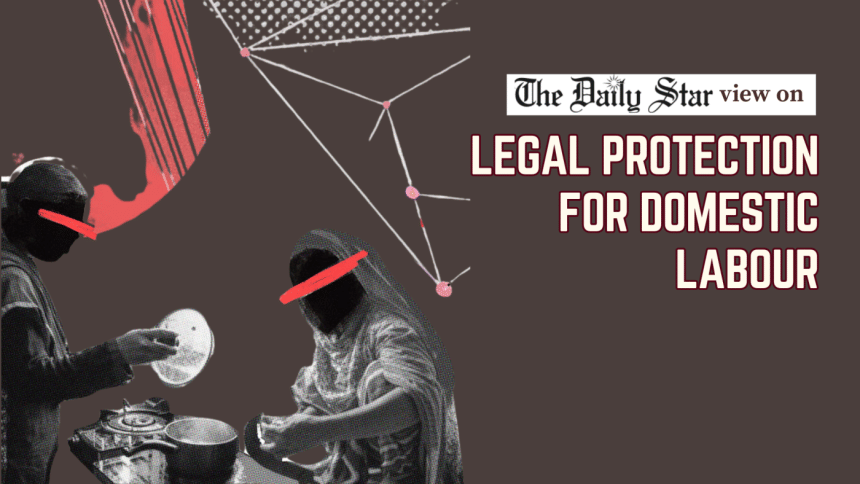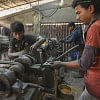Make domestic workers' rights a binding law

Accurate estimates of domestic workers are hard to find as they remain outside the formal workforce in Bangladesh. According to the Bangladesh Bureau of Statistics (BBS), there are approximately 2.5 million domestic workers, 80 percent of whom are women. As poverty rises, these numbers also rise. But despite providing essential services to countless households, these individuals remain largely "invisible" to both the state and society, leaving them exposed to widespread exploitation. There is currently no standardisation in their pay or working hours, resulting in many being underpaid and overworked. Many also face verbal and physical abuse, with little legal recourse due to the absence of representative organisations. Live-in workers, particularly young girls, are especially at risk, with numerous cases of sexual abuse and torture.
So, how can we protect their rights? At a recent dialogue jointly organised by Shobujer Ovijan Foundation, Oxfam in Bangladesh, The Daily Star, and co-funded by the European Union, participants offered several key recommendations. First, domestic workers must be formally recognised under existing legal frameworks. A crucial step would be for Bangladesh to ratify ILO Convention No. 189, which promotes protections and decent working conditions for domestic workers. Meanwhile, the 2015 Domestic Workers' Protection and Welfare Policy, which includes a code of conduct to safeguard their rights, must be enacted into law. Despite repeated proposals from the Domestic Workers Rights Network (DWRN), this has yet to happen.
An ordinance followed by parliamentary ratification is essential, supported by nationwide awareness campaigns targeting both employers and workers. Since the policy's publication, some police stations have begun registering complaints from domestic workers, but without a binding legal framework, justice has remained elusive in most cases.
It is, however, encouraging that the Labour Reform Commission has proposed including domestic workers in the labour law. Other important recommendations include written employment contracts, skills training opportunities, and a workers' welfare fund. Given Bangladesh's ratification of ILO Conventions on the Minimum Age and Worst Forms of Child Labour, the government should also move to end the employment of minors in domestic work. Ultimately, only a binding law, and its proper enforcement, can protect the rights of domestic workers and hold employers accountable. Legal recognition is essential to ensuring these vital workers receive the support and dignity they deserve.


 For all latest news, follow The Daily Star's Google News channel.
For all latest news, follow The Daily Star's Google News channel. 









Comments